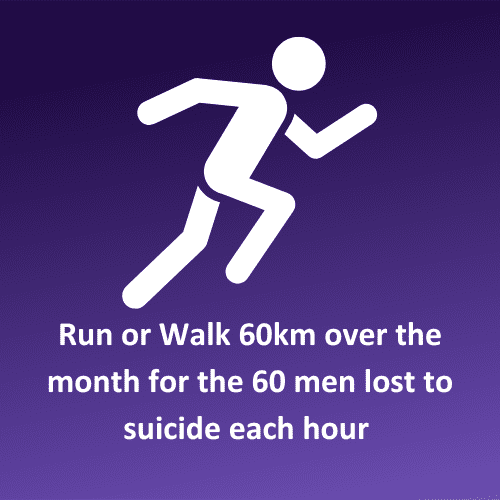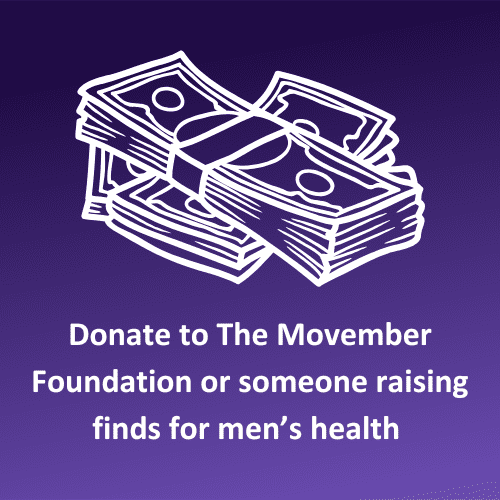
Movember is a global campaign where men grow mustaches to raise awareness and funds for men’s health – specifically prostate cancer, testicular cancer, and suicide.
Across the globe…
- About 1 in 8 men will be diagnosed with prostate cancer in their lifetime (Hoffman, 2024)
- Almost 75,000 men were diagnosed with testicular cancer in 2020 (Znaor et al, 2022)
- The suicide rate among men is more than twice as high than among women (World Health Organization, 2021)
Clinical trials are vital to advance medical research for these illnesses and investigate potentially groundbreaking treatment options.
Barriers to Joining Clinical Trials
Different groups face different barriers to joining clinical trials, including men.
- Social stigma – Men may feel embarrassed or emasculated talking about their prostate, testicular, and mental health – this may cause delays in the screening and diagnosis of their condition. Accurate and timely diagnoses enable better access to clinical trials.
- Fear of tests – Some men may fear the study assessments involved in prostate cancer and testicular cancer trials. During patient enrollment, it is important to educate men about what these study assessments involve, their purpose, and any potential risks.
- Ethnic minorities – Black men are more likely to be diagnosed with prostate cancer (Rebbeck, 2018), yet are underrepresented in prostate cancer trials. Outreach strategies that focus on enrolling people of all ethnicities are important to both reach enrollment numbers and to research the study treatments in all men who may need them.
- Financial – Clinical trials can pose major financial challenges for eligible men, and they may worry about fitting their visits around work or family life. Reimbursing participation costs, organizing transport, providing childcare, and ensuring flexible visit times are all ways that sponsors and sites may support men considering a clinical trial.
Innovative Trials’ Experience
Innovative Trials has a wealth of experience in recruiting and retaining patients for oncology studies, providing support through both our Site & Patient Educational Materials and 1:1 In-country Recruitment Coaching & Site Support.
Case Study A – Site & Patient Educational Materials
Recently, Innovative Trials developed site and patient educational materials for a prostate cancer research program. This included creating 18 different materials, translating to 24 languages, and shipping to 23 countries across the globe.
Here are some ways that we aimed to increase enrollment through our materials:
- Including an infographic in patient-facing educational materials with statistics about how different ethnic groups are affected by prostate cancer.
- Incorporating supportive text in patient-facing educational materials about discussing screening with a doctor, promoting conversations about prostate cancer awareness, and describing the tests used to diagnose or monitor prostate cancer.
- Ensuring Black and Hispanic men were represented in the images on the materials.
- Confirming in the patient-facing educational materials that study-related costs may be reimbursed, including parking, meals, and travel.
- Highlighting in the HCP-facing materials the higher incidence in Black and Hispanic men, and hence the importance of diversity in prostate cancer trials.
Case Study B – 1:1 In-country Recruitment Coaching & Site Support
In one prostate cancer study, Innovative Trials provided 1:1 In-country Recruitment Coaching & Site Support to support patient recruitment and retention. Innovative Trials’ in-country Clinical Enrollment Managers (CEMs) assisted 177 site teams across 17 countries with a number of matters, which included giving over 700 1:1 site coaching calls.
Some actions taken by Innovative Trials’ in-country CEMs included:
- Completing individual site-specific recruitment plans (SSRPs), mapping out all available resources and noting any contingencies in place.
- Increasing patient diversity to include a wide range of different communities, where possible.
- Assisting with data entry challenges.
- Launching a Community Outreach campaign for select sites in the US, in which over 200 locations were contacted regarding study awareness and the distribution of study materials.
The biggest challenges faced by site teams included:
- Finding patients with the exact required disease status.
- Finding treatment-naive patients.
- Maintaining protocol compliance throughout the study treatment.
- Training patients to use the study eDiaries.
- Maintaining the study visit schedule.
- Obtaining informed consent from more elderly patients.
The most effective strategies included:
- Developing an effective review process for patients at all available points of care.
- Developing links with internal and external Urologists, Oncologists, and other healthcare centers, to refer patients on to assigned site teams.
- Maintaining watchlists for patients who could become eligible for the study at later stages.
- Creating chat groups to allow for quick communication of events and ideas.
The results seen from using Innovative Trials’ in-country CEM support included:
- A 27% increase in screening
- A 26% increase in randomization
- 46% of rescue sites, who had been unable to screen any patients, were able to complete screenings after receiving CEM support
Ways to get Involved this Movember
The Movember website discusses lots of ways you can get involved. Here are a few ideas to get you started…




References
- Hoffman, M., (2024). Prostate Cancer Survival Rates: What They Mean. Available from:https://www.webmd.com/prostate-cancer/prostate-cancer-survival-rates-what-they-mean
- Znaor A., et al (2022). Global patterns in testicular cancer incidence and mortality in 2020. Available from: https://pubmed.ncbi.nlm.nih.gov/35277970/#:~:text=With%2074%20500%20new%20cases,young%20men%20of%20European%20ancestry
- World Health Organization (2021). Suicide worldwide in 2019: global health estimates. Available from: https://www.who.int/publications/i/item/9789240026643.
- Rebbeck, T. R., (2018). Prostate cancer disparities by race and ethnicity: from nucleotide to neighborhood. Available from: https://pubmed.ncbi.nlm.nih.gov/29229666/
- Movember (2024). Support Us – Raise Funds. Available from: https://uk.movember.com
